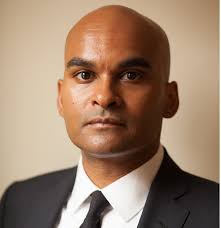
One side of our national immigration debate is led by activist liberals whose principal concern is the plight of immigrants — many of them unskilled and poor — who seek sanctuary from the legal consequences of violating U.S. immigration law. The immigration coverage in The New Yorker and the reporting of such New York Times reporters as Nina Bernstein, Liz Robinson, Marc Lacey, and Julie Hirschfeld Davis has provided a sympathetic, cosmopolitan forum for such views.
Now Reihan Salam, executive editor of National Review, has written a book that powerfully presents the other side of the debate. Salam challenges the notion that unrestrained immigration is such a positive force that only the bigoted oppose it. Provocatively titled Melting Pot or Civil War, it warns that unless we correct the chaotic mismanagement of our disjointed immigration system, we risk deepening divisions of class and race to the point that they will shatter civil society and plunge us into fratricidal violence.
Salam believes that uncontrolled immigration is corroding the American dream, which is built on a foundation of broad-based opportunity and middle-class prosperity. "High levels of low-skill immigration will make a middle-class melting pot impossible," he writes. He says we must reform immigration laws that, by favoring family connections above all else, have combined with mass illegal immigration to swell the ranks of the impoverished and marginalized.
Salam is concerned about the long-term consequences of such economic and societal imbalance. He fears that the children and grandchildren of today's immigrants may become so frustrated and resentful that they will eventually mount a populist revolt from the left.
Salam says the danger derives not only from the open-borders recklessness of the left but also from the xenophobic furies of the right. He blames President Trump for coarsening the debate and inciting hostility with his attacks on immigrants. "In the Age of Trump all conversations about immigration descend into dueling spasms of culture war outrage," he writes.
Salam is in a strong position to advance his argument. As the son of Bangladeshi immigrants, he is not vulnerable to the charges of nativism and bigotry that are often deployed to smother debate. Accordingly, his book carries the subtitle, A Son of Immigrants Makes the Case Against Open Borders.
Salam's presentation of his case is enhanced by his personal qualities. He exudes a tremendously attractive human decency and willingness to compromise. He presents his arguments with disarming warmth and conciliatory restraint. For example, he argues that as we reduce low-skill immigration, we should wipe the slate clean with an amnesty that would acknowledge our government's de facto acceptance of mass illegal immigration. He further facilitates dialogue and compromise by describing those who are here illegally as "unauthorized" rather than as "illegal aliens". He also advocates an expansion of safety-net programs for those who are struggling at the bottom rungs of our increasingly stratified social structure. These are the marks of a mensch, a powerful thinker, and an engaged citizen.
In an interview with San Francisco public radio station KQED, Salam even offered qualified praise for the advocates of open borders. "What I admire about the left but what I just don't relate to is this deep idealism," he said. But then he added that he finds such utopianism fanciful in a world of human imperfection. Salam said his ambition is "to do something that's reasonable, humane, and sustainable."
In other words, Salam believes that while it would be nice if the United States could accommodate the tens of millions of people around the world who yearn for a path to U.S. citizenship, our social contract can survive only if we establish immigration limits and make them credible with resolute enforcement. Open borders and social equality simply cannot coexist.
Salam persuasively argues that "a more selective, skills-based immigration system would yield a more egalitarian economy ... and a more egalitarian economy would help heal our country's ethnic divides." That is a noble ambition. Salam has performed a public service in presenting it in his powerful and persuasive book.
